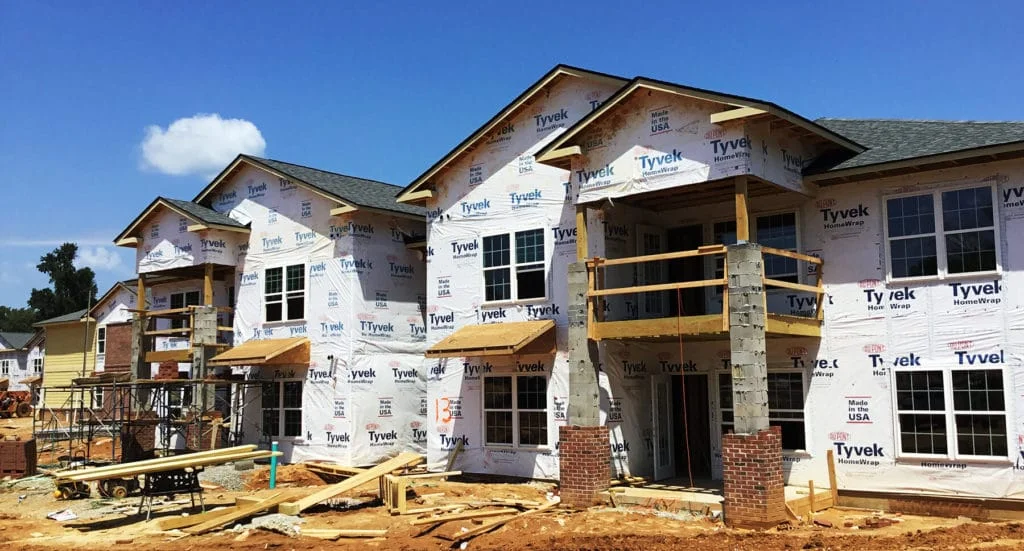Design Analysis Services
We help builders, developers, and architectural teams understand how design implications will impact their properties’ performance.
Energy Modeling
Know how your building will perform before you build it. Determine performance-based compliance during the design phase.
Services & Types of Energy MOdeling
- LEED
- NGBS
- ASHRAE
- Commercial
- COMcheck
- REScheck
Why is it useful?
- Compliance
- ESG Reporting
- ROI Forecasting
- Optimizing Design Considerations
Portfolio Manager
Whether you are benchmarking your property against your portfolio, or satisfying lending requirements, we can get you set up and navigate this widely used tool.
Services
- Reporting SEDI and SEP
- ENERGY STAR Benchmarking
- Property & Building Benchmarking
- Benchmarking Energy Efficiency

Utility Manager
Interacting with utility providers and getting all your energy use in a readable package can be daunting. Let us help!
Services
- Aggregate Data Requests
- Tenant Data Release Agreements
- Data Management and Representation
Utility Analysis
Know how much tenants may pay for electricity, water, and sewer, and how any design changes can affect this.
Services
- LIHTC Compliance
- Utility Allowance
"We have worked with SEM for several years and their team has always been prompt and responsive assisting us with a variety of utility-related analysis during predevelopment for new multifamily projects."
Bobby Funk, Mills Construction
Data Aggregation
& Reporting
Visualize and report on your data without the time-consuming legwork and deciphering it takes to get there.
Services
- Performance Snapshot
- Interactive Performance Reporting
- Community Reporting
- Custom Reporting Solutions

FAQs and Resources
Have more questions? Our building performance team is happy to help!
Schedule a meeting →
Energy Benchmarking allows you to compare your property, building, or even home against a data set made up of similar buildings that are currently in use in the market.
Imagine this: if your vehicle had a miles-per-gallon rating of 8, but you had no awareness of how other vehicles perform, you may think this was a good rating. However, if you were to benchmark your vehicle’s performance against the vehicles currently in use, you would know that 8 miles-per-gallon is very energy intensive. The same rings true for benchmarking a building — know where you stand in the market and if there are improvements to be made.
The cost of energy benchmarking varies based on several factors: the size and type of the property, the origin and ease of obtaining energy use data, and the stage at which the project is in development.
Development teams who are building or retrofitting a building that falls under the commercial code may elect to use a COMCheck.
Many times a consultant like Southern Energy Management or an Engineer on the team, will conduct the COMcheck. Local municipalities will provide a COMCheck as one of the options for showing code compliance in regard to a building’s envelope, mechanical, or electrical systems.
A COMCheck is rarely actually required, however, it is one of the more flexible options given to a project team to demonstrate code compliance.
If for instance, you have a detail, say a window that is below code, you can use a COMCheck as a trade-off tool to demonstrate overall compliance by other attributes of your building, like the exterior wall insulation bringing your overall performance up to meet the minimum standards.
A RESCheck is a performance-based code-compliance tool that is used for residential homes. It’s like a COMcheck, but for single family homes.
To pass a RESCheck, one needs to have a home that collectively passes the minimum requirements for the overall u-factor, based on the particular code enforced by the AHJ. Sounds complicated? Give us a shout so we can walk you through the process.
We can! A RESNET certified HERS Rater in good standing or a licensed professional.
Ready to Get Started?
Schedule a meeting with our green building specialists to review your project goals and challenges.
About Us
North Carolina’s solar power and building performance expert. Founded in 2001, we’ve worked for 20+ years to improve the way people make and use energy.














